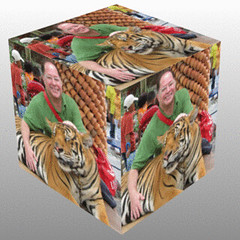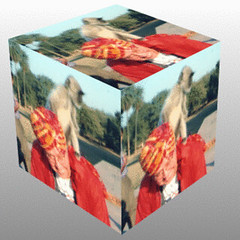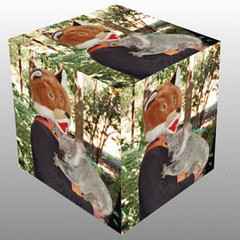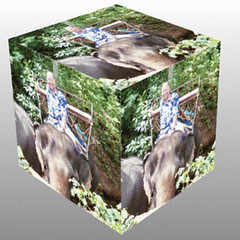
Lucia Ungaro Lockert
My mother is Lucia Fox Lockert. My mother was born Lucia Ungaro on March 29, 1928. My mother was born in Lima, Peru. My mother died in a hospice due to a cascade of conditions on June 9th, 2015. My mother came from an upper middle class family with high educational standards. I have written about her younger brother Manuel Fabricio Ungaro and her parents, my grandparents.
My grandfather on my mother’s side was Fabricio Ungaro and Malpartida. Malpartida was his mother’s last name. My grandfather was born in 1903. My grandfather was one of the founders of the American Popular Revolutionary Alliance (APRA) party in his twenties but later he left the party. He received his Engineering degree in the National University of Engineering in 1926. My grandfather’s field was Electrical and Mechanical Engineering. Depression hit Peru and he got a job with a private company. He had a brother named Mario Alfonso who was born in 1905. He got a job with a petroleum company in the Northern oil fields of Peru. My grandfather knew English and became and oil expert. On his return to Lima he taught at the engineering school in the new field of oil engineering. During his last years of work he worked as a supervisor in the Ministry of Public works. My grandfather became a Free Mason, a well kept secret. My grandfather died in 1956 due to a case of peritonitis.
My grandmother on my mother’s side was Enriqueta Zevallos and Rodriguez Parra. Her mother was the principal of an elementary school. My grandmother died in 1967. My mother had two brothers. Her older brother Mario Aurelio Ungaro was born in 1927 and received his doctor of medicine (MD) from the Facultad de Medicina Humana “San Fernando”in 1954 and did his residence at Buffalo Hospital. He was a pathologist in Trujillo. Her younger brother Manuel Ungaro Zeballos was an architect. Manuel organized La Carta de Machu Pichu in 1977. In attendance were Le Corbusier, Frank Lloyd Wright, Ludwig Mies Van der Roe, Walter Gropius and Alvar Aalto. My mother was very influenced by her great aunt Elisa on her mother’s side that was a suffragette. There is a statue of this aunt in the Parque de la Exposición in Lima, Peru.
She was a valedictorian at her high school. She studied at the National University of San Marcos in Peru. The National University of San Marcos was founded in 1551 and is the oldest university in the Americas (http://en.wikipedia.org/wiki/National_University_of_San_Marco).
She graduated from that university with a baccalaureate in Literature in 1950. She also got another degree in Education and Philosophy in 1952. In 1953 she got a scholarship in a national contest in Peru and came to the United States where she got two more degrees. She received her M.A. in 1955 from Washington University. She received her Ph.D. from the University of Illinois in 1961 in the field of Spanish American Literature.
My mom met my dad at the University at Illinois. My father was working on his doctorate, as well, in American Thought and Language. She married Hugh B. Fox Jr., my father, in June 1956 and changed her name to Lucia Fox. They lived in Los Angeles, California from 1957 until 1968. In 1968, they both went to teach at Michigan State University in East Lansing, Michigan. She remained there until 1999 when she was nominated Emeritus Professor
During the first years of their marriage, they had a very creative, symbiotic relationship. First, they went to Mexico for a year in 1960. Afterwards they went to Peru in 1961. My mom had three children in four years, between 1957 and 1960. My parents were strict Catholics. They went to Europe in 1963 for a summer with their children. We visited England, France, Spain and Germany. I was six years old at the time and this was my first trip abroad.
Afterwards they went to Venezuela for two years from the years 1964-66. My mother enrolled me in Venezuelan schools instead of international schools and I learned Spanish via the sink or swim method. Being fluent in Spanish has helped me immensely and I am grateful to my mother for making this move. My mom was offered a lectureship in the Centro Venezolano Americano and wrote for the literary magazines in Caracas, where her books appeared, Ensayos hispanoamericanos (1965) and Imagenes de Caracas (1965). Then the University of California at Northridge offered a job to my mom which she accepted.
My dad went back to teach at Loyola University. On their return to Los Angeles, my parents formed a group “La Frontera.” My mother published Tragaluz in 1967. It was the time of the Viet Nam war and beatnik poets, they met Charles Bukowski and many other luminaries of the underground press scene during this period. Three of my mom’s books were written then, but appeared two years later, Redes (1968), Tiempo atonal (1969) and Aceleracion multiple (1969). My mother wrote the book La nueva constelacion (1969) an anthology of underground poets. My mother was the cofounder magazine Ghost Dance. She was also an editor of Ghost Dance in 1968.
In 1968 Michigan State University (MSU) offered my parents jobs. My mom worked in the Romance and Classical Languages Department. My father worked in the American Thought and Language Department. My family drove from California to Michigan. I remember this road trip vividly especially our stop at Las Vegas. The lights of Vegas did excite my young imagination.
The family stopped for three months in Providence, Rhode Island. My parents did research in Brown University’s Library while they were waiting for the beginning of classes at MSU. I attended an inner city summer school program and this was my first encounter with African Americans. My mother discovered an important document related to Latin American independence. Also she did research and wrote on Colonial times. She got everything published in scholarly reviews.
My father got a Fellowship after one year in East Lansing. My parents both took a leave of absence to travel to Argentina in 1969. In Buenos Aires, Argentina, my mother wrote La odisea del pajaro, published in 1972. Her book of essays entitled El rostro de la patria en la literatura peruana appeared in Argentina in l970. My parents separated during this year in Argentina and soon afterwards divorced. My mother found herself to be the sole provider in Argentina when my father returned to the US prematurely. Local Argentinean wages at the time were very low. I was thirteen at the time and was old enough to realize our financial situation was tight. My mother tutored students and gave English lessons to make a living. My sisters and I attended Argentinean public schools.
My mother also taught us our American lessons after school. She had gone ahead and gotten US textbooks from our school in the US before going to Argentina and we kept up with our studies in the American school system. We always had a reading hour after school before and after our year in Argentina and this was a major factor in my intellectual progress. Because of this tutorial, I would say my reading level was always two to four years ahead of most of my fellow students. I would also say what I was reading might have been closer to five years ahead scholastically of what my fellow students were reading. I actually read guys like Henry James while I was still in middle school! I am not saying a person that young can really understand someone like Henry James at that age but I did read the books one way or another. I do remember rereading Turn of the Screw in my twenties and thinking how much I missed the first time around. I had read most of the literature required in humanities classes in college before attending college. I have been a teacher since then and observed many students and am now aware how rarely parents are willing to help their children with their academics to this extent and I will always be grateful to my mother for that reading hour.
Upon her return to the States a big change took place in my mom’s life. She became the only provider for her children and had to exert her ingenuity to make money since her salary alone could barely cover the house payment. She started renting rooms to students. My father refused to pay child support and in that period avoiding child support was relatively easy to do. My mother demonstrated a real flair for business and soon was renting properties and making good money from this side venture.
My mother left the Catholic Church because of her divorce in order, as she puts it, to search for her individual liberation. She found her way by joining the feminist cause. She participated in congresses, wrote papers, and organized women. Then she realized that there was something lacking: a book essential to her cause. My mom then wrote Women Novelists in Spain and Spanish America (1979). The book covers a span of four hundred years. The book is organized in three areas: Family, Social class and Sexuality. Called “the Red Book of the Hispanic Feminist Liberation,” it provides a source and a nexus in the history of Hispanic women’s rebellion.
During these years my mother also wrote small editions of poetry including: Latin American in Evolution, bilingual (1974), Mosaicos, bilingual(1974), also in a Poster’s edition. Monstruos terrestres…(1974), Assemblage, bilingual (1977), Constelacion (1978) Leyendas de una princesa india, bilingual, (1979), Formas, bilingual, (1979).
The eighties marked a new immersion in her academic life. She became the first teacher of Chicano Culture and Chicano literature at MSU. She wrote a book of interviews entitled Chicanas, Their Voices, Their Lives (1989). This book was published by the Board of Education of Michigan. She published dramas including Ayer es nunca jamas (1978), Sor Juana, the Tenth Muse (1978) Un cierto lugar (1980). (Sor Juana de America, in Spanish, is different from the English version) (1995).
In the eighties my mom started getting numerous awards including the “The Michigan Council for the Arts Creative Grant,” 1981, “The National Endowment for the Arts Grant,” 1982, ‘The Center for Advanced Studies for International Development” to do research in Feminist Centers in Peru, 1984, “Palmas Magisteriales del Gobierno del Peru”, 1984, “The Diane Creative Award”, 1985, “International Travel Grant to Germany”, 1986, “Michigan Hispanic Educator of the Year”,1988, “ Martin Luther King, Cesar Chaves/Rosa Parks Visiting Program Grant, 1988, The Association of Governing Boards of Michigan Award”, 1990, “The Rockefeller Foundation Grant “ to write in Bellagio, Italy, 1991, “The Poetry Award of the American Association of California”, 1991, “The National Endowment for the Humanities grant for Research in Colonial Literature in New Mexico and Mexico,” 1992, “The Editor’s Choice Award of the National Library of Poetry”, 1993. “Grant for Research in the Renaissance Studies of the Newberry Library in Chicago”, 1994, “Writer in Residence at Florida Atlantic University”, 1997, Invitation to the Department of “Researches Peruviennes et Andines”, Universidad de Pau, France, 1996. Michigan State University’s Emeritus Professor Award,” the Poetry Award “Amauta “in Macchu Picchu, Peru. Diploma del Instituto Literario Cultural Hispanico , 2000, and “Symposium de Escritura Femenina e Historia en America Latina” 2004.
My mother went to Peru to study the condition of poor women in the shanty towns. Under the guidance of the members of the Feminist Center “Peru/Mujer”, she was also able to do research in other feminist centers. Her book Feminist Centers (1988) was expanded into Grass-Root Feminist Centers in Lima, published by Women in International Development at Michigan State University, (1993). A poetry book Lima in Chaos appeared (1990 and is a portrait of her birth place and the changes she finds. In her drama The Risk of Living (1991), she shows the political insurgence of the “Shining Path” a Socialist Movement in Peru. When my mom was a graduate student at University of Illinois she did some work for the great sociologist Oscar Lewis, author of Sanchez’ Children. She applied his sociological methods to Chicanas, Their Voices, Their Lives. Also in the drama The Risk of Living, we feel her political awareness.

My Mother at Machu Pichu
Vida y Creación, is my mom’s autobiography. The book appeared in 1993 in Spanish. The autobiography also contains poems for each section. It is divided in several chapters: 1. Divorce 2. Lover 3. Julian 4. Academy 5. Lima, birth place 6. Lucia 7. U.S.A. 8. Trips 8. My children 9. Magic 10. The Extra-terrestrials.
Her divorce was final in 1970. Her second marriage was to Clinton Lockert in 1972. Around this period my mother settled on the professional name of Lucia Fox Lockert. Her advice to female writers is to stick to one name for publication purposes. My mom is a feminist pioneer in many ways and had to learn the name game the hard way. Clint and my mom live happily in East Lansing. Her three children are adults now. She said then that the most important thing that caused her to work as hard as she did was to make enough money to be able to pay for their college education. She did it, all alone. She is proud of the accomplishments of her children. I am the oldest and have two younger sisters, Marcella and Cecilia. Marcella has two masters. I went on to get my master’s and doctorate. Cecilia is living with my mom in East Lansing and is a great help to her.
There are two stages in my mom’s teaching career at MSU. The first half of her thirty years she taught Contemporary Spanish American Literature. During this time period, she met luminaries like Jorge Luis Borges, Carlos Fuentes, and Julio Cortazar.
In the second stage of her career at MSU, she taught pre-Columbian and colonial literature. In 1992, she participated with a group of twenty professors in a seminar in New Mexico and Mexico. Indian Visions a poetry book published in 1996 expresses her consciousness of Indian and the Spanish identity.
In 1995, my mom decided to put in three books papers she had written for conferences. Of course, many conferences publish the papers presented at the conference. Many of the books are written in Spanish, the translation of the titles are as follows 1. Spanish Chroniclers and Emancipators 2. Women: Writing and Subversion and 3. Peru: Writing and Subversion. For the first book she did some research at the Brown University Library, and in the Newberry Library in Chicago. For the second book she includes nineteenth and twentieth century novelists: Matto de Turner, Carbonera, Castellanos, Poniatowska, Garro, Silva, and Allende. In the third book she includes Garcilaso de la Vega, Vallejo, Scorza, Arguedas, the evolution of the popular theatre, and Indian Protest literature writers.
Lucia published, Semillas de los dioses, Seeds of the Gods, a novel in the year 2000. It is a saga of several Indian characters and a Moorish woman named Zaira. It takes place in Peru in colonial times, from the time of the discovery of America until the execution of the Inca Tupac Amaruc, the last descendent of the Incas. It is not just a narration of adventures and travels but becomes a puzzle of esoteric consequences. The main characters after many trials and errors discover that they are descendents of the extraterrestrials. When the first encounter happens, extraordinary events are mixed in the characters’ apparent accidents. In their search for identity, they move via magic from one vibrational plane to the next.
Two Spanish poetry books Nova (2004) and Arcana (2008) have appeared lately. My mom introduces a new technique to her poetry a new way of applying her cosmic vision to ordinary themes. The metaphorical impact crosses the barriers of time. This gives her poetry a unique quality. Pulitzer Prize winner, Ben Belitt had recognized very early in her publications my mom’s unique quality in Spanish letters: “it comes out like the water mark in fine paper or the grain of wood. I don’t see how it can fail to interest others, as a phenomenon itself. You have got a “black sound,” “a duende” at your best, which I believe in totally.”
My mom has received many reviews of her writing, Professor Deborah Gonzalez in the Latin American Women Writers, an Encyclopedia (Routledge, 2008) wrote: “Her work is a collage of personal metaphysical ponderings within a context of transplanted feminism… Fox is a prolific writer, poet, a playwright, author and artist, professor and advocate. She has written poems about legendary princesses, plays of revolution, research studies on women novelists of Spanish descent, and memoirs praising the country of her birth, Peru. Her themes encompass historical facts, flights of fancy, distant nostalgia, and political philosophy on gender and equality.”
My mother died at the age of 87 on June 9 2015.
Works in Alphabetical Order
Aceleración múltiple. Buenos Aires: Ediciones Losada, 1969.
Arcana. East Lansing: La Nueva Crónica, 2008.
Assemblage. East Lansing: Superspace, 1977.
Ayer es nunca jamás. Lima: Editores Salesianos, 1980.
Chicanas: Their Voices, Their Lives. Lansing: Board of Education, 1989.
Constelación. East Lansing: Shamballa Publications, 1978.
Cronistas y emancipadores. East Lansing: La Nueva Crónica, 1996.
El pérfil desnudo. East Lansing: Shamballa Publications, 1978.
El riesgo de vivir. East Lansing: La Nueva Crónica, 1992.
El rostro de la patria en la literatura peruana. Buenos Aires: Ediciones Continente, 1970.
Ensayos hispanoamericanos. Caracas: García Hermanos, 1965.
Feminist Centers in Lima, Perú. East Lansing: La Nueva Crónica, 1988.
Formas-Forms. East Lansing: Shamballa Publications, 1979.
Grass-roots Feminist Organizations in Lima, Perú. East Lansing: Women in International Development – MSU, 1993.
Imágenes de Caracas. Caracas: García Hermanos, 1965.
Indian Visions English. East Lansing: La Nueva Crónica, 1997.
La odisea del pájaro. Bilbao: Empresas Editoras, 1972.
Latin America in Evolution. East Lansing: Superspace, 1974.
Leyendas de una princesa india / Legends of an Indian Princess. East Lansing: Shamballa Publications, 1979.
Lima en caos. East Lansing: La Nueva Crónica, 1980.
Monstruos aéreos, terrestres y submarinos. East Lansing: Superspace, 1974.
Mosaicos (English edition). East Lansing: Old Marble Press, 1974.
Mosaicos (Spanish edition). East Lansing: Argonauta, 1974.
Mujeres: escritura y subversión. East Lansing: La Nueva Crónica, 1995.
Múltiples. East Lansing: Ghost Dance, 1969.
Nova. East Lansing: La Nueva Crónica, 2004.
Perú: escritura y subversión. East Lansing: La Nueva Crónica, 1995.
Preludios íntimos. Lima: Editorial Cóndor, 1945.
Recuerdos. East Lansing: La Nueva Crónica, 2008.
Redes. Barcelona: Ediciones Carabela, 1968.
Rueda dos (antología). East Lansing: Superspace, 1990.
Rueda. East Lansing: Superspace, 1988.
Saga. East Lansing: La Nueva Crónica, 1992.
Semillas de los dioses. East Lansing: La Nueva Crónica, 2000.
Sor Juana de América. East Lansing: La Nueva Cróncia, 1995.
Sor Juana, the Tenth Muse. East Lansing: Pachacamac, 1988.
The Risk of Living. East Lansing: La Nueva Crónica, 1991.
Tiempo atonal. East Lansing: Ghost Dance, 1969.
Tragaluz. Los Angeles: Ediciones la frontera, 1967.
Un cierto lugar. Lima: Editores Salesianos, 1980.
Vida y Creación. East Lansing: La Nueva Crónica, 1993.
Visiones indias. East Lansing: La Nueva Crónica, 1997.
Women Novelists in Spain and Spanish America. New Jersey: The Scarecrow Press, 1979.
I dedicate this page on my blog to my mom with all my love and admiration!
Hugh B. Fox III
Photo albums of my mom at:
http://s883.photobucket.com/albums/ac35/foxhugh/Mom/
http://s919.photobucket.com/albums/ad37/hughfox2/Mom%20Photo%20Effect/
WereVerse Universe Baby!
Google Drive Link: WereVerse Universe























































Excellent, congratulations
Nice job.
thanks!
Thank you Hugh, interesting reading. Lucia’s link is wrong above, should be http://www.msu.edu/~lockert
What a nice tribute to your mother, my aunt.
August 12 is Mothers Day in Thailand, where I am living right now so the timing works out pretty well.
Good Job Hugo! I enjoyed to read about auntie Lucia, she is an outstanding woman and writer.
Tu escrito es muy agil y facil de leer, buen trabajo!
Thanks for the kind comments. Writing the piece was fun.
Congratulations Hughie!
Your Mom is my best and favorite cousin and we are very proud of her.
Dear Sara
I am sure my mother will appreciate your kind words. On a totally different note.
I still remember reading your Classicos Illustrados at your families house. That was a comic book printed by a Mexican company called Ediciones Navarones. They mostly reprinted DC stuff and later Marvel stuff. They would reprint a lot of older stuff so I got a feel for the older DC stuff because of them. There is very little stuff online about the none US stuff Ediciones Navarones printed.
I’m so proud of mom. Thanks for posting this on your blog.
Glad you liked the post!
Thank you so much for taking the time to list her biography, works published, and accolades. I’m working toward my Master’s in Spanish and am doing an analysis of her short story “Detras del Telón”. You have given me a spring-board from which I will further research this politically charged story which takes place en su patria, Perú. If you have anything to share with me about this particular story, and feel inclined to respond, I would be honored. Muchísimas Gracias.
Dear Rhiannon, I went ahead and forwarded you message to my mom and sent you a copy of the email. Hopefully she will contact you directly soon. Good Luck!
Over a half-century ago, I received my BA in Spanish Lit from CSUN, in Northridge, California, where your mother was one of my favorite professors. I took both of my History of Latin American Literature (Parts 1 and 2) classes with her and enjoyed both tremendously.
I have never forgotten Dr. Fox as a knowledgeable and inspiring teacher, as well as being a genuinely nice person.
Although available space has forced me to shed most of the library of texts I accumulated during my decades of formal education, I never let go of my copy of “Tiempo Atonal”. Thank you for your listing of her works. It would appear that I may again need to begin adding books to my now-manageable library.
Thank you for the thorough and caring biography of your mother, and for bringing to light the extensive and impressive career of a most remarkable woman.
Muchísimas Gracias, from an appreciative former student (who even enjoyed helping her carry a few boxes from the classroom to her “elefante gris”).
Dear Bruce, thank you for your kind words! I will make sure to share your comments with my mom and I am sure it will make her day. Best wishes, Hugh
How can you help a person suffering from an attack.
This will help you get ready for the worst effect
that this process might have on your body. And for anxiety problems, recovery
means being able to manage anxious feelings better to ultimately prevent panic attacks.
There are different things which cause panic attacks for different people, but it’s important to remember that you can remain in control of them.
Hi Hugh Fox thanks for sharing your mother’s story, it is an inspiration to me, as a woman and writer. And – as a teacher, I find your website inspiring, too.
Pingback: Lucy Fox Lockert 29 Maret 1928-09 Juni 2015 | Info Micro
Hugh. Greetings from Chick’s (Clinton Lockert) nephew in Colorado. My wife and I are visiting Chile in February and I wanted to let my Chilean friends know about Lucia and her work. I visited with Chick in Long Beach not long before he passed away. He was still going strong when I visited him in the memory-care unit. His son David and his wife Penny could not care for him in the last few years. BIG QUESTION??? Whatever happened to Lucia’s huge collection of art from rural Peru that she had collected at the house in E. Lansing. I sure hope a museum was able to go thru it and make use of it.
Sorry for the late response. My sister got all the Peruvian art. I am living a very minimalist existence in Siem Reap, Cambodia.
Thanks for getting back to me. I am glad the art didn’t go to Goodwill. “Very minimalist existence”… good for you!